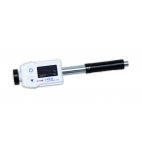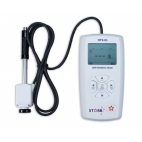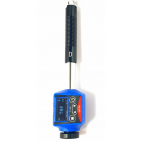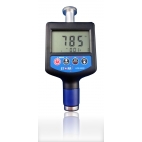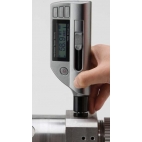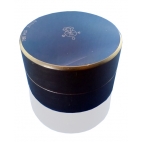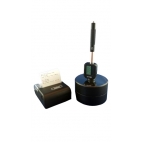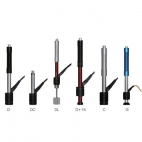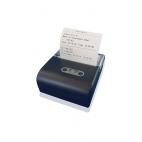Categories
Viewed products
-
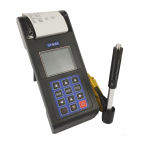
LHT-160 Portable...
• External impact device LEEB hardness tester• Interchangeable impact...
-
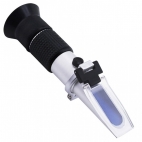
Auto Refractometer...
A manual Refractometer that is used for testing the concentration of...
-
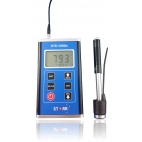
HTR-1000s Portable...
HTR-1000s is a portable hardness tester ideal for general use. It...
More info
The LHT-160 Series LEEB Hardness tester from Starr Instruments is designed for users wanting the ultimate in hardness testing capabilities with comprehensive data results display and storage. Available with different impact devices to perform almost any metal hardness testing from large, unmachined castings through to small finished components. It is commonly used in production QC and to determine fit for purpose and to gauge condition of metal parts and components.
The LHT-160 series is easy to operate and calibrate with the included reference hardness test block and achieves highly accurate and repeatable results within ±6 HLD as standard.
The LHT-160 Series uses the LEEB rebound method of testing and the results are displayed on the pda alongside conversions to the scales of HRC, HRB, HB, HV, MPa and Shore. You can then one-touch print, or you can save the data and transfer to your PC later with the included USB cable. The key feature which enables the LHT-160 Series to measure a wide range of results is the ability to interchange the impact device. This makes the LHT-160 series more economical as it is much better value to only have to buy an additional impact device rather than an additional complete tester.
FEATURES:
• Large, colour TFT display
• Dual hardness value display in HL and user selected unit (HRC, HRB, HB, HV, MPa, HS Shore Duro)
• Software included
• Test set data summary screen
• Auto Impact Device recognition
• Integrated printer
There are different impact devices to suit different applications. The most common type is the D type.
D Type impact devices are suitable for general use on most steels and other metal with thickness over 5mm and bulk weight above 5kg
DC Type Impact devices are suitable for small spaces such as the inner face of pipework or in recessed areas where there is minimal headroom. Only 86mm total height.
DL Type impact devices are suitable for deep and or narrow channels, grooves and holes. Needle point only 6mm diameter.
C Type impact devices are suitable for small and lightweight work pieces less than 5mm and 2kg in weight. Also for surface hardened layers
G Type impact device is suitable to big and heavy work pieces with rough surface such as raw castings.
The "Standard Kit" consists of the tester, D type impact device, charger, cleaning brush, data cable, user manual and factory calibration certificate.
The "Complete Kit" adds a calibration reference test block.
SPECIFICATIONS:
(MAIN UNIT)
| HL Display Range | 170 ~ 960 HLD |
| Repeatability | ±6 HLD |
| Test Direction | All (selectable) |
| Impact Device | D, DC, DL, C, G |
| Display | 3.9" backlit LCD Touchscreen |
| Printer | 2.4G wireless direct |
| Operating Voltage | 5VDC, 1A |
| Weight | 300gm |
| Communication | USB |
| Calibration Certificate | Factory supplied |
(INDENTER)
| Impact Device | D/DC/DL | C | G |
| Impact Energy | 11mJ | 2.7mJ | 90mJ |
| Mass of Impact body | 5.5g/5.5g/7.2g | 3.0g | 20g |
| Hardness of spherical test tip | 1600HV | ||
| Material of spherical test tip | Tungsten Carbide | ||
| Diameter of impact device | 20/20/6mm | 20mm | 30mm |
| Length of impact device | 147/86/202mm | 141mm | 255mm |
| Weight of impact device | 75/50/60g | 75g | 250g |
| Max Hardness of workpiece | 940/940/950HV | 1000HV | 650HV |
| Surface Roughness of workpiece | ≤1.6µm | ≤0.4µm | ≤6.3µm |
| Min weight of workpiece (direct) | >5Kg | >1.5Kg | >15Kg |
| Min weight of workpiece (supported*) | 2 ~ 5Kg | 0.5 ~ 1.5Kg | 5 ~ 15Kg |
| Min weight of workpiece (coupled**) | 0.05Kg ~ 2 | 0.02 ~ 0.5Kg | 0.5 ~ 5Kg |
| Min thickness of workpiece (coupled) | 5mm | 1mm | 10mm |
| Min thickness of hardened layer | 0.8mm | 0.2mm | 1.2mm |
* Supported means that the test pieces is placed on a large, stable backing such as a vice or heavy metal bench
** Coupled means the test piece needs to be physically clamped and firmly attached to a stable backing.
This is necessary to reduce the vibration and any impact absorption from the test impact which would result in inaccurate, low readings.
Similar Products and Accessories:
-
HTX-02...
$ 800.00
-
HTX-01...
$ 1,000.00
-
LHT-110...
$ 995.00
-
HTR-1000i...
$ 995.00
-
HTR-1000s...
$ 995.00
-
TH-170...
$ 1,595.00
-
Hardness...
$ 295.00
-
LHT Portable...
$ 1,495.00
-
LHT-Series...
$ 495.00
-
Wireless...
$ 295.00





